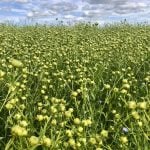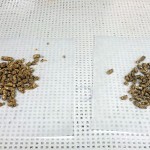This was one of the worst years for fusarium head blight in western Canadian spring wheat — a sobering backdrop to the 8th Canadian Workshop on Fusarium Head Blight, held here Nov. 20-22. More than 200 scientists from Canada, the United States, Germany, England, Australia, Switzerland and beyond reviewed the latest research into fusarium head









